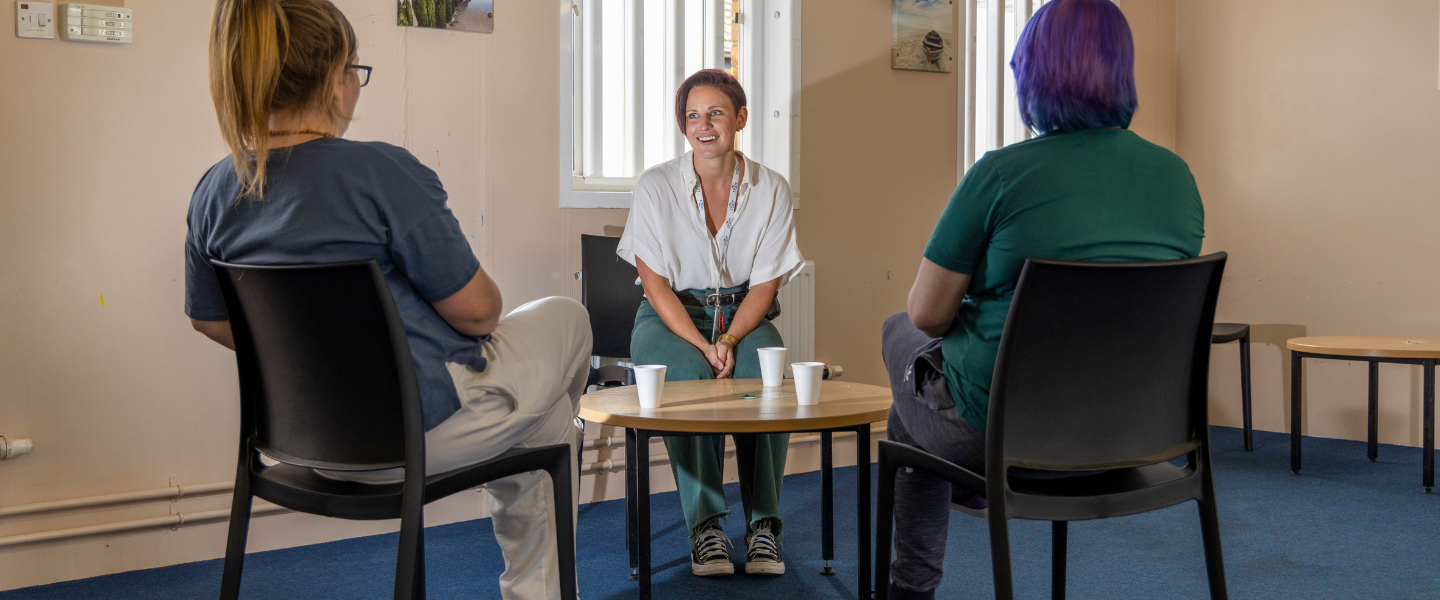07/03/2024
News
Dedicated social workers needed in every women’s prison to tackle record levels of self-harm
- Investing in dedicated staff to keep mothers in touch with their children would help to tackle spiralling levels of self-harm in women's prisons.
- 95% of children are forced to leave home when their mother goes to prison as they have no other adult to take care of them.
- An estimated 17,000 children are affected by the imprisonment of a mother every year, and many will be separated on Mother's Day (10 March).
- New research from Cardiff University shows 'clear and incontrovertible evidence' of the need for prison-based social workers to support mothers.
All women's prisons should have social workers dedicated to supporting mothers in custody to stay in touch with their children, where it is in the child's best interests, according to the charity Pact (the Prison Advice and Care Trust).
The call coincides with the publication today of an independent evaluation report by Cardiff University of a pilot project which employs dedicated, prison-based social workers in two women's prisons - HMPs Send and Eastwood Park.
It sets out how the project, generously funded by the Sylvia Adams Charitable Trust, has benefitted children and mothers and played a significant role in managing self-harm and the risk of suicide. There were nearly 20,000 incidents of self-harm in women's prisons last year – the highest on record. The rate of self-harm per 1,000 prisoners in women's prisons increased by 38% on the previous year and is over ten times higher than in men's prisons.
An estimated 17,000 children are affected by the imprisonment of a mother every year, and many will be separated on Mother's Day this Sunday. The evaluation shows that supporting these relationships helps mothers and their children. Even where it is decided that mothers should not have contact with their children, the social workers support the women, helping them to come to terms with this, minimising the risk of self-harm and suicide.
Previous research has found that 95% of children are forced to leave home when their mother goes to prison, as they have no other adult to take care of them. The Cardiff University report found that brothers and sisters can often be split up from one another and highlights the detrimental impact this can have on the children.
Andy Keen-Downs, Pact CEO, said: "Today's report sets out the crucial role of prison-based social workers in bridging the gap between mothers in prison and their children on the outside.
"Separation from children is one of the major factors driving the deeply worrying levels of self-harm in women's prisons. Supporting everyone through the process helps to keep the women safe, reduces the likelihood they will reoffend on release and benefits the children on the outside."
"It's been over four years since a Government-commissioned review recommended that every women's prison should have dedicated social workers. We have the evidence that it works - now it's time for Ministers to invest in this simple, common-sense measure."
"This is a particularly tough time of year for mothers in prison and their children. On Mother's Day this Sunday, we'd urge everyone to spare a thought for these women – many of whom have themselves been victims of emotional, physical or sexual abuse."
Katia Parent, Pact Social Worker at HMP Send, said: "We're giving the mothers a chance to be there for their children and to show their children that they still have parents who love them and will do everything for them from prison. It's about giving women hope for the future and their children the opportunity to have a relationship with their mother where that's appropriate."
The pilot project in HMPs Send and Eastwood Park followed Lord Farmer's landmark review in 2019 about the importance of maintaining family ties in women's prisons. The report recommended that the Ministry of Justice fund on-site social workers as part of a multi-disciplinary team within each prison.
Professor Alyson Rees from Cardiff University noted: "Mothers often have either an antagonistic or non-existent relationship with social workers in the community. Social workers in the community often do not know where mothers are imprisoned or how to contact them. By having a qualified social worker in the prison, this provided a point of contact who was able to support mothers, children, community social workers and help advise prison staff".
The new evaluation, published today by Cardiff University, shows that:
- The Pact social workers played a significant role in supporting women in managing mental health difficulties.
- All mothers were 'very satisfied' with the social worker service, and 91% reported feeling supported by professionals within the prison.
- For 88% of mothers who participated in the project, contact issues were resolved in the child's best interests.
- The social workers' specialist knowledge has benefitted prison staff by upskilling and educating them about the legal landscape around maternal relationships.
Facts about women in prison:
- There were 3,622 women in prison on 16 February 2024 [MoJ Prison Population stats]
- It's estimated that 17,000 children are affected by maternal imprisonment every year. 95% of children are forced to leave home when their mother goes to prison as they have no other adult to take care of them [University of Oxford]
- Two-thirds of women (69%) entering prison to serve a sentence have committed a non-violent offence [Prison Reform Trust Bromley Briefing February 2024]
- Rates of self-harm among women in prison are at the highest levels on record. Last year, there were nearly 20,000 incidents, a rise of 38% compared to the previous year. Although women make up only 4% of the prison population, they account for 29% of all recorded self-harm incidents. [Safety in Custody statistics Ministry of Justice]
- Almost two-thirds of women in prison are reported to be survivors of domestic abuse, and half report having experienced emotional, physical or sexual abuse as a child. [Women In Prison, key facts] · People who receive visits when they are in prison are 39% less likely to reoffend [The Importance of Strengthening Prisoners' Family Ties to Prevent Reoffending and Reduce Intergenerational Crime]
- Family contact can help address the causes of reoffending on release. However, keeping in touch is often made more difficult by being held in prison far from home. The average distance a family has to travel to visit women in prison is 63 miles. [Prison Reform Trust Bromley Briefing February 2024]

